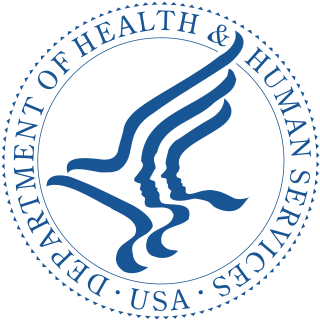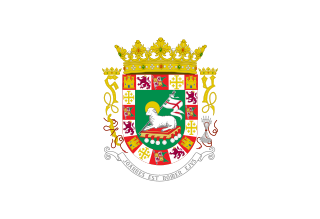See also
- Cabinet Secretary for Education and Skills, a cabinet position in the Scottish Government
- United States Secretary of Education, the head of the United States Department of Education
Education Secretary may refer to:

The Cabinet of the United States is the principal official advisory body to the president of the United States. The Cabinet generally meets with the president in a room adjacent to the Oval Office in the West Wing of the White House. The president chairs the meetings but is not formally a member of the Cabinet. The vice president of the United States serves in the Cabinet by statute. The heads of departments, appointed by the president and confirmed by the Senate, are members of the Cabinet, and acting department heads also participate in Cabinet meetings whether or not they have been officially nominated for Senate confirmation. The president may designate heads of other agencies and non-Senate-confirmed members of the Executive Office of the President as members of the Cabinet.

The United States Department of Health and Human Services (HHS) is a cabinet-level executive branch department of the U.S. federal government created to protect the health of the U.S. people and providing essential human services. Its motto is "Improving the health, safety, and well-being of America". Before the separate federal Department of Education was created in 1979, it was called the Department of Health, Education, and Welfare (HEW).

The government of the Commonwealth of Puerto Rico is a republican democracy established by the Constitution of Puerto Rico in 1952. Under a system of separation of powers, the government is divided among three branches: the executive, the legislative, and the judicial. As a territory of the United States, the government of Puerto Rico is under the jurisdiction of the federal government of the United States.

The governor of the State of Maryland is the head of government of Maryland, and is the commander-in-chief of the state's National Guard units. The governor is the highest-ranking official in the state and has a broad range of appointive powers in both the state and local governments, as specified by the Maryland Constitution. Because of the extent of these constitutional powers, the governor of Maryland has been ranked as being among the most powerful governors in the United States.
Minister of state is a designation for a government minister, with varying meanings in different jurisdictions. In a number of European countries, the title is given as an honorific conferring a higher rank, often bestowed upon senior ministers. In the United Kingdom and several other Commonwealth countries, "minister of state" is a junior rank subordinate to ministers of higher rank. In Brazil and Japan, all ministers of cabinet rank hold the title, while in Australia "minister of state" is the designation applied to all government ministers regardless of rank.
The United States federal executive departments are the principal units of the executive branch of the federal government of the United States. They are analogous to ministries common in parliamentary or semi-presidential systems but they are led by a head of government who is also the head of state. The executive departments are the administrative arms of the president of the United States. There are currently 15 executive departments.

The Welsh Government is the executive arm of the devolved government of Wales. The government consists of cabinet secretaries and ministers. It is led by the first minister, usually the leader of the largest party in the Senedd, who selects ministers with the approval of the Senedd. The government is responsible for tabling policy in devolved areas for consideration by the Senedd and implementing policy that has been approved by it.

The Convention of 5 October 1961 Abolishing the Requirement of Legalisation for Foreign Public Documents, also known as the Apostille Convention, is an international treaty drafted by the Hague Conference on Private International Law (HCCH). The Apostille Convention is intended to simplify the procedure through which a document, issued in one of the contracting states, can be certified for legal purposes in the other contracting states of the convention. A certification under the convention is called an apostille or Hague apostille. An apostille is an international certification comparable to a notarisation, and may supplement a local notarisation of the document. If the Convention applies between two states, an apostille issued by the state of origin is sufficient to certify the document, and removes the need for further certification by the destination state.

The governor of Puerto Rico is the head of government of the Commonwealth of Puerto Rico, and commander-in-chief of the Puerto Rico National Guard.
Ministry or department are designations used by first-level executive bodies in the machinery of governments that manage a specific sector of public administration.
A health minister is the member of a country's government typically responsible for protecting and promoting public health and providing welfare and other social security services.
A private secretary (PS) is a civil servant in a governmental department or ministry, responsible to a secretary of state or minister; or a public servant in a royal household, responsible to a member of the royal family.
Director of communications is a position in both the private and public sectors. A director of communications is responsible for managing and directing an organization's internal and external communications. Directors of communications supervise public relations staff, create communication strategies, and may serve as the key spokesperson and media contact for the organization.

The Cabinet of Mexico is the Executive Cabinet and is a part of the executive branch of the Mexican government. It consists of nineteen Secretaries of State and the Legal Counsel of the Federal Executive.
The Commissioner of Education was the title given to the head of the federal Office of Education, which was historically a unit within and originally assigned to the Department of the Interior in the United States. The position was created on March 2, 1867, when an act to establish the Office of Education took effect under the influence of the more Radical Republican Party. They were influential mostly in the Northern states and New England, which were much more progressive in the fields of education and had already established many state departments of education. They also had a large number of public schools and systems in cities, towns and counties, both at the elementary (grammar) school and high school levels, in which the South had lagged behind.
Undersecretary is a title for a person who works for and has a lower rank than a secretary. It is used in the executive branch of government, with different meanings in different political systems, and is also used in other organizational settings.
The title secretary of state or state's secretary is commonly used for senior or mid-level posts in governments around the world. The role varies between countries, and in some cases there are multiple secretaries of state in the country's system of governing the country.

A cabinet in governing is a group of people with the constitutional or legal task to rule a country or state, or advise a head of state, usually from the executive branch. Their members are known as ministers and secretaries and they are often appointed by the head of state or prime minister. Cabinets are typically the body responsible for the day-to-day management of the government and response to sudden events, whereas the legislative and judicial branches work in a measured pace, in sessions according to lengthy procedures.

The executive branch of the government of Puerto Rico is responsible for executing the laws of Puerto Rico, as well as causing them to be executed. Article IV of the Constitution of Puerto Rico vests the executive power on the Governor—who by its nature forms the executive branch.

The Spokesperson of the Government of Spain is a high ranking of the Government of Spain whose purpose is to inform and communicate to society the political and institutional action of the central government. Its headquarters is located in the denominated Complex of La Moncloa. Currently the holder of the position enjoys the rank of Minister.